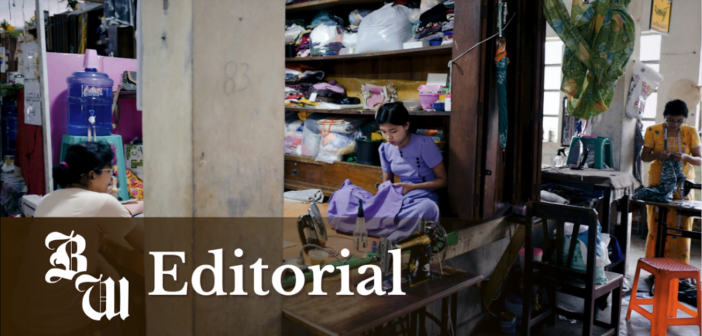The new “Quiet on Set” docuseries has exploded in popularity over the last few weeks, becoming the most streamed TV series on both MAX and Prime video.
The five-part series explores the child labor law violations, toxic work conditions and sexual abuse scandals that took place on a number of producer Dan Schneider’s Nickelodeon shows from the early 2000s to the 2010s.
Interviews with child actors who worked on shows like “Drake and Josh,” “All That” and “The Amanda Show” revealed how lax enforcement of child labor laws and poor oversight from network executives allowed Schneider to create an unhealthy work environment.
Under Schneider, these actors were expected to work longer hours than federally legal for minors, complete humiliating and sometimes traumatizing “On-Air Dares,” be the subject of subtly sexual jokes on camera and even perform massages for Schneider on set.
Harrowing stories of the entertainment industry chewing up and spitting out child actors is by no means a new phenomenon, but now we have the added shock value of seeing the child actors we grew up watching be subject to these abuses.
Also rising in popularity is the movement by many Republican politicians to loosen statewide child labor laws and move away from the federal Fair Labor Standards Act currently in charge of regulating child labor in America.
We believe “Quiet on Set” should act as a warning to young voters of how loose child labor regulation leads to the rampant abuse of child workers.
And even though the stories of abuse and labor law violations seen on “Quiet on Set” represent the entertainment industry and not the experiences of all child workers, we believe the series can act as a tragic example of the pitfalls of lax child labor regulation.
More specifically, we ascribe to the notion that the protection of children should not be undercut by their economic value in the workforce.
Over the past three years, 12 states have enacted bills meant to weaken child labor laws, and a total of 28 states have introduced bills with the same purpose.
In most cases, these bills either alleviate the need for government-approved working permits for children under 16, extend the hours child laborers are allowed to work (usually on school nights) or allow children to work in jobs or operate machinery previously deemed unsafe for children.
The rationale for enacting these changes is that they will help children develop useful skills in the workforce, let child laborers fill the holes in a struggling labor market and give parents more control over the employment of their children (thus giving the government less control in the matter.)
Where these bills miss the mark is trusting parental control over government regulations regarding child labor, and prioritizing child labor’s value to the job market over the safety of the children.
The fact of the matter is parents cannot always be trusted to have their child’s best interest at heart when making decisions about their employment.
“Quiet on Set” contains interviews with parents of child actors, and some parents revealed that they kept quiet about the child labor law violations at Nickelodeon with the hope of furthering their child’s career.
Whether those parents were trying to protect their child’s future in Hollywood, or if they were using the money from their children’s acting for themselves, as detailed in Jennette McCurdy’s memoir “I’m Glad my Mom Died,” is still unclear.
But the fact remains that parents cannot always be trusted to do what is best for their children when it comes to deciding on their employment and workload, and federal restrictions must remain to assure the child’s protection.
Additionally, the claims that these bills are providing children with useful skills and providing the struggling labor market with much needed workers, prioritizes the child’s role as a worker and value to the workforce over protection of the child from being overworked or unsafe.
In violating the child protection laws represented in the Fair Labor Standards Act, these bills are creating more opportunities for child laborers to suffer from work-related injuries, and to be worked to unhealthy lengths.
If “Quiet on Set” taught us one thing, more structures should protect children from being overworked so that they can have fulfilling lives and careers.
Instead of allowing the children to work longer hours and potentially jeopardize their safety and education, a possible solution could be increasing welfare or expanding safety net programs.
The movement to weaken child labor laws is being felt all over the country and has already been enacted in states as close as New Jersey and Ohio.
So we ask that you take the stories from “Quiet on Set” as a warning of the pain and trauma that can result from weak child labor regulation. And that you keep in mind that the most important priority in child labor legislation is the protection of children.






Comment policy
Comments posted to The Brown and White website are reviewed by a moderator before being approved. Incendiary speech or harassing language, including comments targeted at individuals, may be deemed unacceptable and not published. Spam and other soliciting will also be declined.
The Brown and White also reserves the right to not publish entirely anonymous comments.
2 Comments
The use of children in entertainment has long been source for problems. News of a new incident of abuse essentially adds nothing to what is already known.
What is needed as an independent overseer who has nothing to gain from the child, parent or the entertainment industry. Current government, independent of party, Is not capable of helping the situation.
https://youtu.be/oGtseVUw-_M
Bill Mahr on the subject.